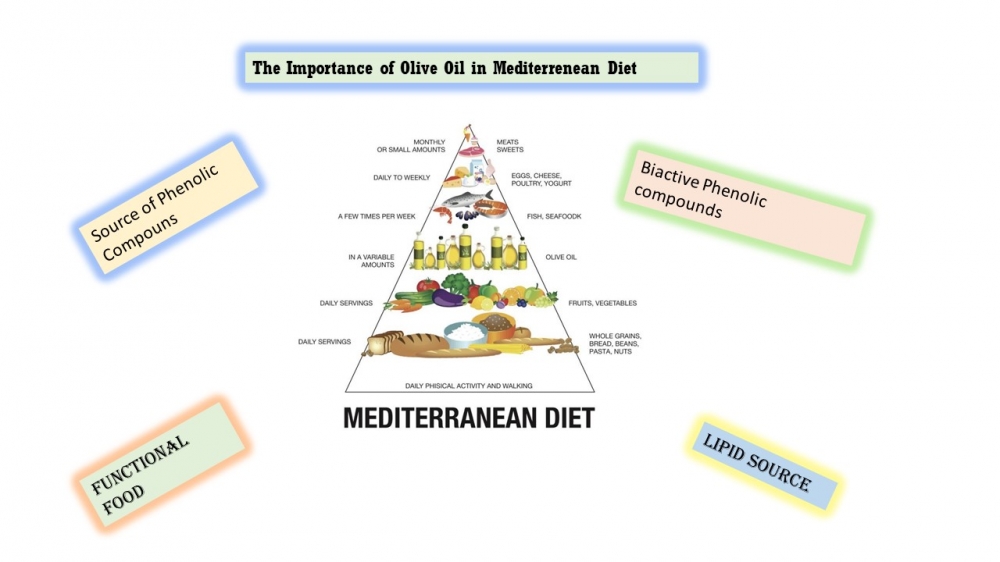JOURNAL 3048
Records of Agricultural and Food Chemistry
Year: 2024 Issue: 3 Special Issue: Abstracts 3rd. TCS, International Food Chemistry Congress February 29-March 03,2024 Antalya Türkiye
p.3 - 3
Viewed 1758 times.
GRAPHICAL ABSTRACT

ABSTRACT
The Mediterranean diet is linked to numerous health benefits. Traditional descriptions of the Mediterranean diet originate from various countries including Greece, Italy, France, Spain, Portugal, Turkey, Tunisia, Algeria, Lebanon, Morocco, and others. The Mediterranean diet is traditionally associated with low rates of chronic diseases and high adult life expectancy. The Mediterranean diet is unique due to its relatively high intake of nuts, olive oil, and moderate consumption of wine, particularly red wine, during meals. It can be considered a primarily plant-based diet. Olive oil, which is the main source of lipids in this diet, contains bioactive components with biological properties. Extra virgin olive oil is a functional food that contains a major saponifiable fraction, oleic acid, as well as saturated and unsaturated acids such as linoleic, palmitic, and stearic acids. Additionally, it contains a minor unsaponifiable fraction that includes tocopherols, polyphenols (such as tyrosol, hydroxytyrosol, and oleuropein), sterols, phospholipids, carotenoids, chlorophylls, waxes, squalene, and other hydrocarbons. These compounds have protective and antioxidant effects. Most studies linking olive oil consumption to increased life and health spans also show potential benefits. These include preventing type 2 diabetes, metabolic syndrome, obesity, cancer, cognitive decline, and cardiovascular disease mortality, among others [1–5].
KEYWORDS- Olive oil
- antioxidant
- mediterrenean diet
- functional food